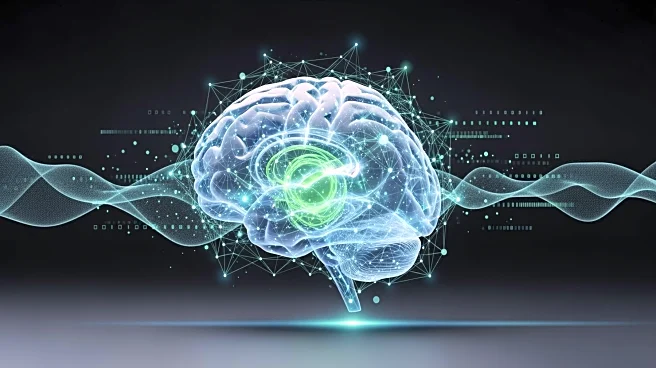What's Happening?
A study approved by The Hospital for Sick Children and Stanford University has developed multiclass machine learning models to identify molecular subtypes of pediatric low-grade glioma using bi-institutional
MRIs. The study utilized MRIs from patients aged 0-18 years, focusing on molecular subtypes such as BRAF fusion, BRAF p.V600E mutation, and non-BRAF cases. The research employed random forests and other classifiers to optimize classification performance, using radiomics feature extraction to enhance precision medicine. The study aimed to improve the reproducibility and accessibility of radiomics research, offering a structured approach for reliable analysis.
Why It's Important?
This research represents a significant advancement in precision medicine for pediatric brain tumors, potentially improving diagnostic accuracy and treatment outcomes. By utilizing machine learning models, healthcare providers can better identify molecular subtypes, leading to more targeted and effective therapies. The study's focus on reproducibility and accessibility in radiomics research addresses critical challenges in medical imaging, paving the way for more reliable and standardized diagnostic tools. This could lead to improved patient care and outcomes, particularly for children with brain tumors.
What's Next?
The study's findings may encourage further research and development in the use of machine learning models for precision medicine. As the technology becomes more refined, it could be applied to other types of cancer and medical conditions, enhancing diagnostic capabilities and treatment strategies. Healthcare institutions and researchers will likely continue to explore the potential of radiomics and machine learning, aiming to integrate these technologies into clinical practice for better patient outcomes.
Beyond the Headlines
The use of machine learning in medical imaging raises important ethical considerations, particularly around data privacy and the potential for algorithmic bias. Ensuring that these technologies are used responsibly and transparently will be crucial as they become more integrated into healthcare systems. Additionally, the study highlights the growing role of artificial intelligence in transforming medical research and practice, potentially leading to long-term shifts in how diseases are diagnosed and treated.









